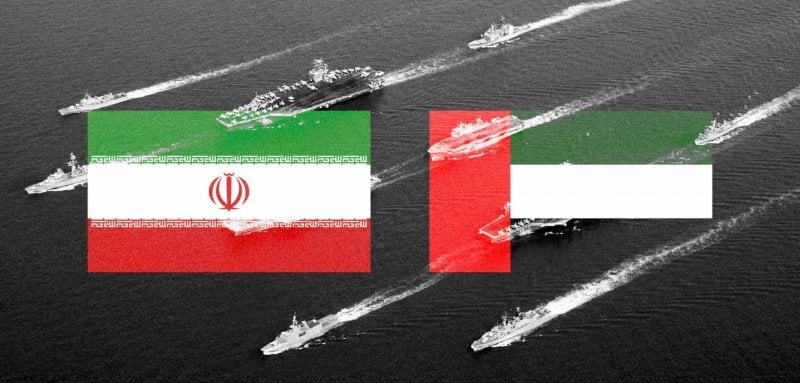A high ranking Iranian official declared that the relations with the United Arab Emirates (UAE) are "very good", and that the two countries have an understanding on both the national and regional level, this came within hours of the UAE's foreign minister statement on the necessity for a diplomatic solution to the crisis with Iran.
Iran's official state news agency had relayed a statement by the head of Iran's border guard Qassem Rezaei on the 11th of November, stating: "Today, relations are very good between Iran and the neighboring countries and the Gulf region, particularly the UAE, Qatar and Kuwait."
In a press conference, Rezaei noted that Iran's border guards have held a number of meetings with their UAE counterpart, and have reached agreements on the national and regional levels.
UAE's Foreign Minister admits the Houthis are "part of Yemeni society and will continue to have a role in its future" and calls for diplomatic solutions; Changing tides in the region or just a setback to warring sides?
Simultaneously, the UAE's minister of foreign affairs Anwar Gargash has called for the "necessity to reach diplomatic solutions and refrain from escalation when it comes to Iran."
On the differences between the policies of the two countries in Yemen, Gargash declared that the Iranian-backed Houthis are "part of Yemeni society and will continue to have a role in its future."
Gargash added that the conduct of new talks with Iran should not only extend to the nuclear file, but must address the fears relating to the country's ballistic missiles program and its intervention in other countries' affairs through proxies around the region.
During Abu Dhabi's Strategic Debate 2019, Gargash added that the discussion of these issues requires the participation of the region's players, noting his belief that an agreement with Iran is possible.
It should be noted that during the past few months, the Gulf region has witnessed escalating tensions between Washington and its allies Riyadh and Abu Dhabi on one side, and Tehran on the other.
The tension reached its peak with an attack on two major oil refineries in Saudi Arabia on the 14th of September, an event which caused the suspension of a daily oil production of 5.7 million barrels – comprising 5% of the world's daily oil supply.
Despite the attack being claimed by the Yemeni Houthi movement, Washington insisted that Tehran stood behind the attack – an allegation repeatedly and firmly denied by Tehran.
Raseef22 is a not for profit entity. Our focus is on quality journalism. Every contribution to the NasRaseef membership goes directly towards journalism production. We stand independent, not accepting corporate sponsorships, sponsored content or political funding.
Support our mission to keep Raseef22 available to all readers by clicking here!
Interested in writing with us? Check our pitch process here!





